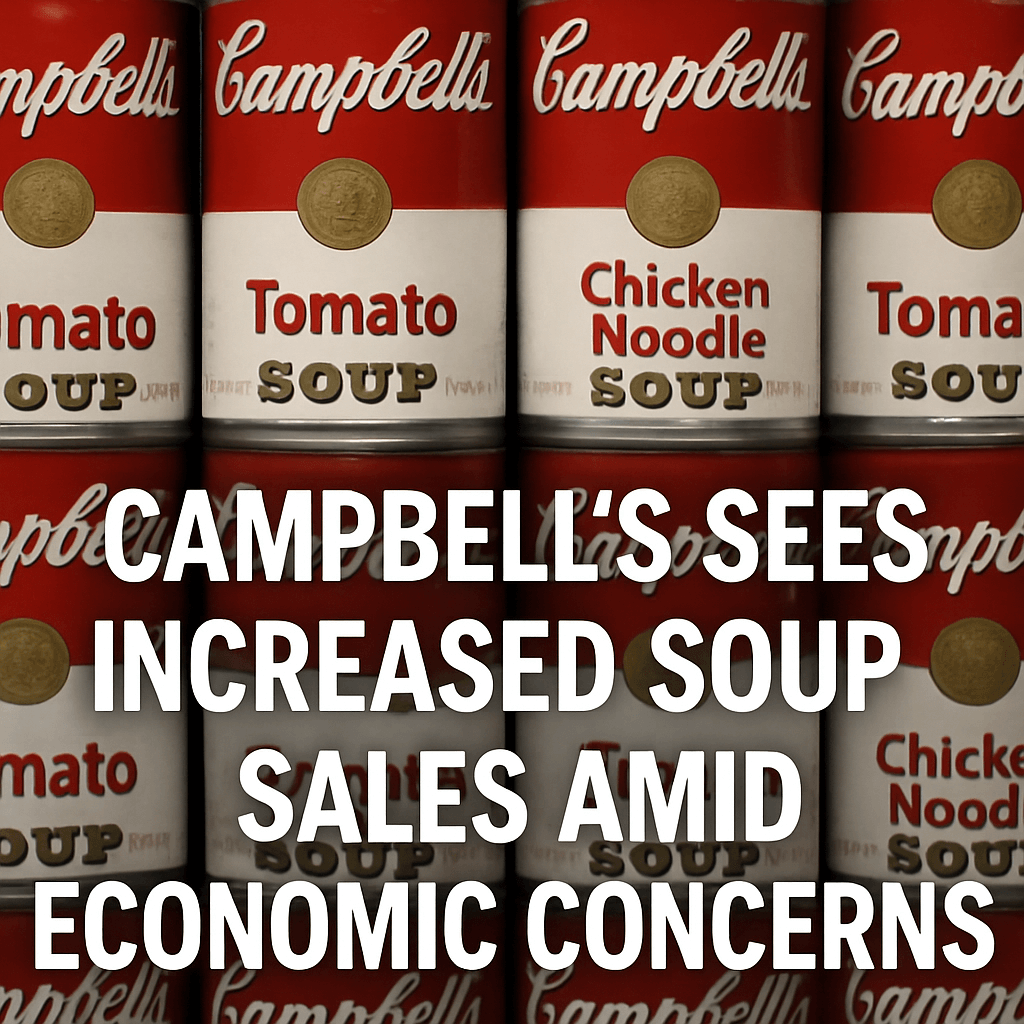Campbell’s Sees Increased Soup Sales Amid Economic Concerns

Recent statements from Campbell’s CEO, Mick Beekhuizen, indicate a significant shift in consumer behavior towards home-cooked meals, a trend that could signal an impending economic downturn. With the company’s reported increase in soup sales, economic analysts are noting the implications of this change on broader economic conditions.
Current Consumer Trends and Economic Signals
During a recent earnings call, Beekhuizen highlighted a “growing preference for home-cooked meals,” suggesting that consumer sentiment has begun to soften since January. He elaborated that this trend has persisted through the quarter, with consumers now making more deliberate choices regarding their food spending. “We’ve observed the highest levels of meals prepared at home since early 2020,” he stated.
This shift towards cooking at home underscores a significant reduction in dining out, which could impact GDP—an essential indicator of economic health. The common rule of thumb is that two consecutive quarters of decreasing GDP signal a recession. According to the latest statistics, consumer spending accounts for about 70% of the U.S. economy; hence, a decline in discretionary spending on items such as restaurants and dining-out experiences could lead to a contraction in economic growth.
Budget-Conscious Consumers Favoring Essentials
Amid tightening budgets, consumers are increasingly purchasing staple items that provide value for their money. Beekhuizen noted a rise in demand for affordable ingredients such as condensed soups, broths, and Italian sauces, which allow households to stretch tight food budgets. In contrast, spending on discretionary items like crackers and chips has diminished, reflecting a more cautious consumer outlook.
- Increased Demand for Comfort Foods: The trend toward buying comfort foods, particularly during economically challenging periods, has shown a rise. Campbell’s soups and other cooking essentials tend to thrive when families prioritize economical meal solutions.
- The Home Cooking Trend: The uptick in home cooking could suggest a more significant consumer withdrawal from eating at restaurants, potentially stymying economic growth.
- GDP Implications: If consumer spending continues on this trajectory, experts warn that the GDP may shrink, pushing the economy closer to a recession.
Geopolitical Factors Influencing Economic Outlook
In addition to changing consumer habits, geopolitical factors are increasingly contributing to fears of approaching economic doom. Recently, the U.S. government announced that tariffs on steel and aluminum have doubled, raising further concerns regarding inflationary pressures. These tariffs can increase costs across various industries, likely leading to higher consumer prices.
Investment mogul Ray Dalio, founder of Bridgewater Associates, has been vocal about the potential for a recession, asserting that changes in the monetary order—as evidenced by sharp sell-offs in the bond market—may precipitate a downturn. “This is not a normal recession kind of situation,” Dalio noted in April, highlighting the uniqueness of the current economic climate.
The Broader Economic Landscape and Forecasts
As experts assess the possible trajectories of the economy, they underscore the importance of monitoring consumer sentiment and spending. Economic indicators, coupled with geopolitical tensions, paint a complex picture, suggesting that while companies like Campbell’s may benefit from current trends, the overarching implications could spell trouble for the economy.
“The consumer’s pivot towards home cooking is a prudent response to economic uncertainty, but it holds larger implications for how we view overall economic health,” experts note.
As Campbell’s and other food manufacturers adjust their strategies to meet evolving consumer needs, the market waits with bated breath for upcoming economic reports to ascertain the true state of the U.S. economy.
Conclusion
In summary, the increase in sales of Campbell’s soups is indicative of a broader, cautionary trend among American consumers as they adjust their spending in the face of economic uncertainty, potentially foreshadowing a recession. With rising costs and geopolitical risks, it remains to be seen how these factors will shape future market dynamics.